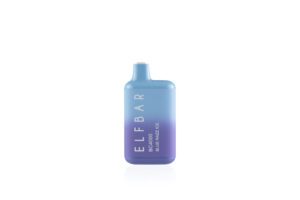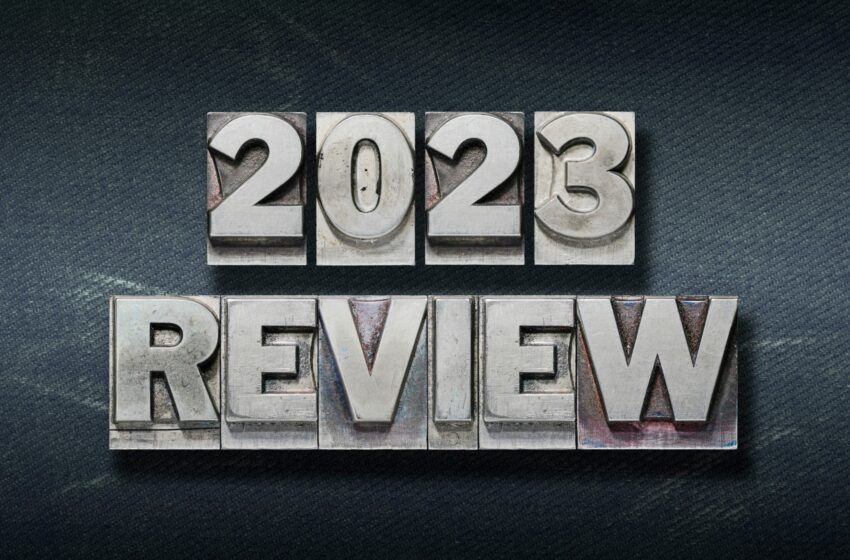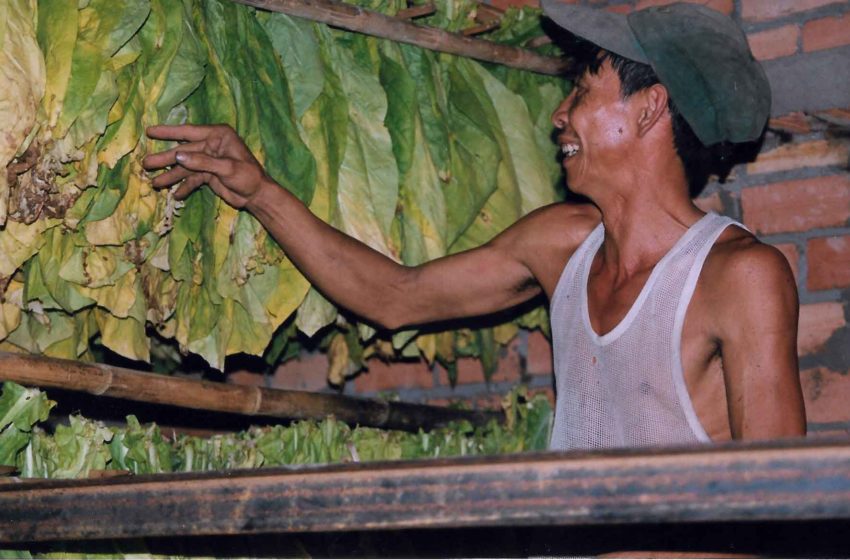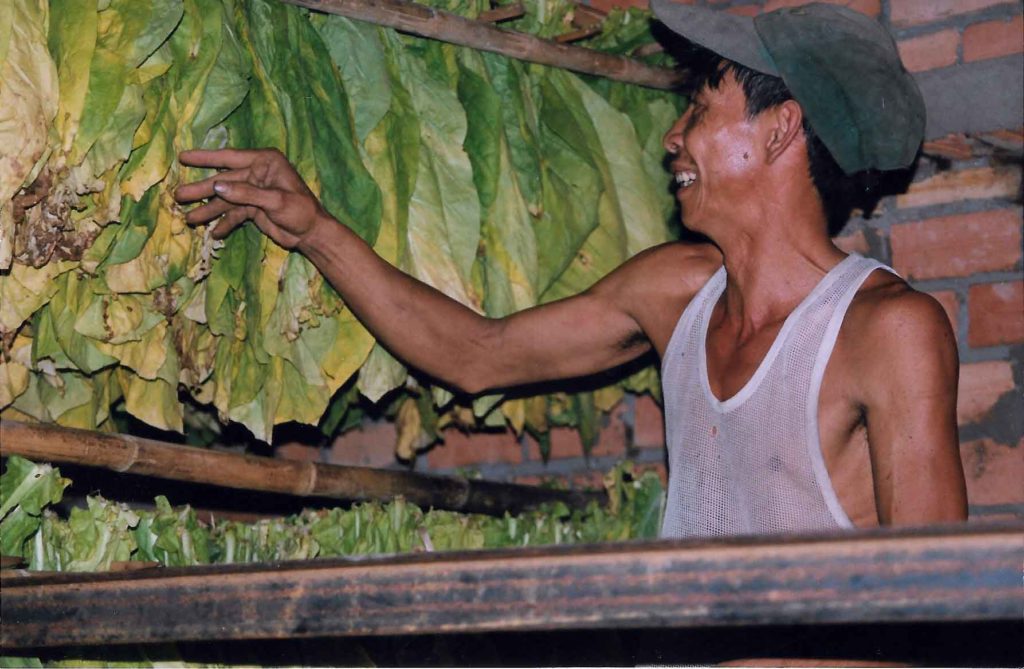
Regulatory challenges and misinformation continued to test the vaping industry in 2023.
By TR staff
It remains a frustrating business environment. The vaping segment has survived despite setbacks in 2023 and continues growing as a global market. However, divergent regulatory perspectives on vaping’s harm reduction potential continue to hinder its uptake by cigarette smokers. The past 12 months could also be labeled the year of the great exodus as several vaping retailers and manufacturers went out of business. Despite the challenges, more and more former smokers continue to switch.
While several countries banned, enacted regulations or continued heavily regulating vaping products, the United States’ denials of numerous premarket tobacco product applications (PMTAs) had the greatest impact on the industry this year. The U.S. Food and Drug Administration’s ban on most products has allowed a black market of disposable vapes to become a multibillion-dollar industry. Disposable e-cigarettes account for almost 40 percent of the global vape sector, according to ECigIntelligence.
Critics have accused the industry of avoiding responsibility for the environmental damage caused by disposable vaping products while federal regulators have failed to pass measures that would make vaping components easier to recycle or more eco-friendly. Some regulations have been proposed to lessen the products’ environmental impact. For example, standards could be put in place requiring them to be reusable or mandating that manufacturers fund collection and recycling programs.
Disposable e-cigarettes currently account for about 53 percent of the multibillion-dollar U.S. vaping market, according to the Centers for Disease Control and Prevention, more than doubling in size since 2020. Several states, including New York and California, have extended product responsibility laws in place for computers and other electronics, but those rules don’t apply to vaping products. At the federal level, there are no regulations specifically for the disposal of vaping products. Without action, some experts say the devastating environmental impact could last for centuries.
Misinformation surrounding the vaping industry also continued to spread in 2023. Nearly half of cigarette smokers and young adult nonsmokers think that nicotine-based e-cigarettes have the same amount or even more harmful chemicals than regular tobacco-based cigarettes, according to a Rutgers study.
Another study found that there are also a lot of exaggerations and misinformation about vaping on social media. Some tweets exaggerate or distort claims about nicotine and addiction while others misinterpret scientific studies to promote vaping. There are also tweets that downplay the harmful effects of nicotine and promote its benefits, which are potentially problematic. Below is a month-by-month recap of the vaping industry’s biggest headlines in 2023.
January

The upscale U.K.-based grocer Waitrose halts sales of single-use vaping products due to environmental concerns. The FDA says it will “decide within months” how to regulate legal cannabis (it still hasn’t). Vaporesso becomes the first open-system vaping device brand to obtain the ability to sell in the United Arab Emirates. The Netherlands bans flavors, and Belgium says it plans to restrict flavor names and vape devices. A 2022 article that claimed e-cigarette users faced the same cancer risk as combustible cigarette smokers is retracted by the World Journal of Oncology. Lawmakers in Taiwan ban vaping products. A U.S. district judge preliminary approves a $255 million settlement resolving consumer claims that Juul Labs deceptively marketed e-cigarettes.
February

Hong Kong begins enforcing its ban on CBD, labeling it as a “dangerous drug” and imposing harsh penalties for its possession. Bloomberg Philanthropies commits $420 million over four years to the Bloomberg Initiative to Reduce Tobacco Use. Australia reschedules the psychedelics psilocybin and MDMA to provide access to people with post-traumatic stress disorder. Connecticut sues five companies for selling delta-8 products. Alex Norcia resigns from Filter for a job at Altria. RAI Services Co. submits a citizen petition asking the FDA to adopt a new enforcement policy directed at “illegally marketed disposable electronic nicotine-delivery system [ENDS]” products. Matthew Farrelly, former chief scientist and director of the Center for Health Analytics at RTI International, is named director of the FDA’s Center for Tobacco Products’ (CTP) Office of Science. The FDA files the first civil money penalties for illicit sales of ENDS products.
March

Altria Group exchanges its entire investment in Juul Labs for a nonexclusive, irrevocable global license to certain of Juul’s heated-tobacco intellectual property. Altria also agrees to acquire Njoy Holdings for approximately $2.75 billion and asks the U.S. Federal Trade Commission (FTC) to drop its 2020 challenge to the company’s 2018 acquisition of a 35 percent share in Juul Labs. The FDA proposes new requirements for tobacco product manufacturers regarding the manufacture, design, packing and storage of vaping and other tobacco products. RLX Technology reveals that its 2022 financial performance was heavily impacted by new industry regulations and e-cigarette taxes, along with Covid-related disruptions, in China. A U.S. federal judge throws out a tobacco industry lawsuit against California’s statewide ban on the sale of flavored vaping and other tobacco products. The FDA updates its definition of “tobacco products” to include nontobacco nicotine products. Two menthol Vuse flavors that received a marketing denial order (MDO) can continue to be marketed by R.J. Reynolds Vapor Co. after the federal 5th Circuit Court of Appeals issues a stay. Argentina bans imports and sales of ENDS products. Former CTP Director Mitch Zeller joins the advisory board of Qnovia, a “platform pharmaceutical” company that is developing a prescription inhaled smoking cessation therapy.
April

Malaysia removes e-liquid containing nicotine used in e-cigarettes and other vaping products from the country’s Poisons List of controlled substances. Greentank Technologies closes a Series B financing round worth $16.5 million with a “strategic investor group” that includes BAT-funded Canadian cannabis producer Organigram Holdings. Vuse’s U.S. market share rises from 41.5 percent while Juul’s declines to 26.1 percent. Altria’s youth marketing suit in California begins. The U.K. announces plans to give 1 million smokers free vaping starter kits to encourage them to give up tobacco products. Juul Labs settles youth marketing lawsuits with six states, bringing the total of state settlements to 45 states, with a combined price tag of more than $1 billion. Panama rejects a proposal to regulate vaping products. The High Court of Justice in London rules that Philip Morris Products’ patents protecting its tobacco-heating technology are valid. Delaware becomes the 22nd U.S. state to pass a recreational marijuana bill. Altria’s youth marketing suit in California begins.
May

Australia announces that it will ban the importation of all nonprescription vaping products, including those that do not contain nicotine. R.J. Reynolds sends letters to several small vape shops threatening to sue them if the shops do not stop selling flavored vaping products. A U.K. report shows inmates are spending more than £7 million ($8.5 million) a year on e-cigarettes. Logic Technology challenges the FDA’s marketing denial of its menthol vape products. Altria strikes a $235 million deal to end a California lawsuit alleging that the company marketed vaping products to youth. Flonq launches the world’s first fully recyclable vape device—the Flonq Plus-E. Yolonda Richardson succeeds Matthew Myers as president of Tobacco-Free Kids. The FDA issues “Import Alert 98-06” detaining new tobacco products such as e-cigarettes without marketing authorization at the border. Altria completes its purchase of Njoy.
June

Hawaiian law makes shipping of vaping and other tobacco products valued at more than $10,000 a misdemeanor. ANDS launches Slix, a disposable vape that it says is 99.29 percent recyclable.
Bidi Vapor sends the initial shipment of Bidi Sticks to over 900 Kwik Trip and Mapco locations.
A federal appeals court rules that the FDA acted reasonably in denying Magellan Technology’s application to market flavored vaping products.
The FDA issues warning letters to 189 retailers for selling unauthorized tobacco products, specifically Elf Bar and Esco Bars brands. Zanzibar bans the use and imports of vape products. The CTP announces that it has made significant strides in putting its Reagan-Udall Foundation recommendation-based plan for improvement into action.
July

Juul Labs asks the U.S. International Trade Commission (ITC) to block sales and imports of the Njoy Ace vapor device, claiming that the product infringes several Juul patents. The FTC dismissed the complaint against Njoy parent Altria Group for its purchase of a 35 percent stake in Juul Labs after Altria’s pullout. New York City accuses Magellan Technology Inc., Ecto World LLC (Demand Vape), Mahant Krupa 56 LLC (Empire Vape Distributors) and Star Vape Corp. of racketeering for selling illegal flavored vapes. Jason Carignan moves to Chemular. The FDA gives the Ohio State University Comprehensive Cancer Center a $3.9 million grant to evaluate the effects of e-cigarette flavors on the smoking behaviors of current adult smokers. Philip Morris International acquires Syqe Medical, an Israeli company, for an estimated $650 million. Juul Labs submits a PMTA to the U.S. FDA for the Juul2 system. China’s State Tobacco Monopoly Administration releases the guidelines for vape exports. A study linking nicotine vapes to liver disease was retracted from Gastroenterology Research. The FDA sends more warning letters for Esco Bars and Elf Bar sales. China vape exports top $3.36 billion for the first half of 2023.
August

Ukraine imposes a consumption tax on disposable vapes. Venezuela bans all vaping products. The Philippines passes a law forcing importers of raw materials for vaping products to seek special clearances to release shipments. High Light Vape, which sells a vape pen disguised as a highlighter, is lambasted by the media. Njoy asks the ITC to ban the import and sale of certain Juul products. New Zealand imposes new regulations to limit youth vaping. The Coalition of Asia Pacific Tobacco Harm Reduction Advocates launches its shadow report on the World Health Organization’s failing tobacco harm reduction strategy. Juul Labs announces a company restructuring aimed at reducing operating costs. Romania bans flavors for heated-tobacco products. Suriname bans the sale of all vaping products. The U.S. Court of Appeals for the D.C. Circuit sides with Fontem U.S. in a ruling that the FDA failed to conduct a proper analysis before rejecting some vaping product marketing applications.
September

The U.K. Vaping Industry Association announces that it will exclude tobacco companies from its membership. Indonesia legalizes vaping. Esco Bars’ manufacturer files a lawsuit challenging the FDA’s import ban of its products. Vaporesso becomes the first licensed company to sell open systems in the UAE. New York opens state cannabis licensing to the public. The FDA sends warning letters to 15 companies that market products under the brand names Elf Bar, EB Design, Lava, Cali, Bang and Kangertech. A massive fire destroys U.K. e-liquid and hardware brand Dinner Lady’s factory. Ispire announces that its fiscal year 2023 saw a 100.4 percent and a 10.9 percent surge in cannabis and tobacco vaping product revenues, respectively. Healthier Choices Management Corp. sues R.J. Reynolds Vapor Co. seeking royalties from sales of its Vuse Alto vape pens, chargers and pre-filled liquid pods, alleging the products infringe a patent. The FDA imposes civil money penalties on 22 retailers for the illegal sale of Elf Bar/EB Design products.
October

Philip Morris International unveils LEVIA, a zero-tobacco stick for use with its IQOS heat-not-burn device. A new study, E-Cigarette Flavor Restrictions’ Effects on Tobacco Product Sales, finds that flavor bans boost sales of traditional combustible cigarettes. U.K. Prime Minister Rishi Sunak proposes a tobacco endgame plan. The U.S. Supreme Court declines to hear Avail Vapor’s arguments against the FDA’s regulatory authorization process. ECigintelligence reports that disposable e-cigarettes account for almost 40 percent of the global vape sector. The American Vaping Association ends operations; Greg Conley joins the American Vaping Manufacturers Association. The FDA declines to issue a marketing order for flavored Vuse Alto pods. Elf Bar changes its name to defy a U.S. import ban. Njoy files lawsuits against 34 foreign and domestic manufacturers, distributors and online retailers of illicit disposable vaping products. Logic Technology Development loses a court appeal to halt the FDA’s ban on the company’s menthol-flavored pods. Czechia bans flavors for heated-tobacco products. Altria says a booming illegal disposable flavored vape market is causing a major decline in the sales of its authorized vaping products.
November

Italy’s Regional Administrative Court of Lazio (TAR) suspends a decree that would make CBD oil a narcotic substance until Jan. 16, 2024. The global vaping market will reach $93.94 billion in value by 2030, registering a CAGR of 16.27 percent from 2022 to 2030, according to Straits Research. BAT announces a $90.5 million investment in Organigram. Ohio becomes the 24th U.S. state to allow adult marijuana use for nonmedical purposes. Research from the United Nations suggests that toys are a much larger contributor to electronic waste than vaping products. The FDA again sends warning letters to online retailers for selling disposable products marketed under the brand names Elf Bar, EB Design, Bang, Cali Bars and Lava. The 10th Conference of the Parties (COP10) to the World Health Organization Framework Convention on Tobacco Control is postponed, officially due to unrest in the host nation, Panama.
Louisiana’s state Office of Alcohol and Tobacco Control releases a list of nearly 400 approved vape products for legal sale in the state. Juul Labs raises an estimated $1.3 billion in funding. Ispire Technology reports revenue of $42.9 million and gross profit of $6.9 million in the quarter that ended Sept. 30. The FDA increases the penalties for violations of federal nicotine product laws. PMI expands IQOS Iluma in the Middle East. New Zealand’s new coalition government announces a cancelation of the country’s controversial generational tobacco ban. The Foundation for a Smoke-Free World, which was originally funded by PMI, says it will no longer accept any monetary support from the nicotine industry. The WHO announces the dates for the resumed in-person sessions of COP10 for February 2024. Australia will ban imports of disposable vapes beginning Jan. 1, 2024. France plans to ban disposables by 2025.
December

(Editor’s Note: This magazine went to press in December, so the month may be incomplete.) The FDA announces that it is now estimating that completion of PMTA reviews may be delayed as the agency considers the D.C. Circuit’s opinion in Fontem U.S. v. FDA, affirming in part and vacating and remanding in part MDOs for certain vaping products. U.S. House lawmakers demand information from federal officials on what they are doing to stop the influx of kid-appealing electronic cigarettes from China. Mexico’s Supreme Court of Justice rules that the presidential decree banning the sale of e-cigarettes is unconstitutional. The FDA announces that it has filed civil money penalty complaints against 25 brick-and-mortar and online retailers for selling unauthorized Elf Bar, EB Design and other e-cigarette products. France’s National Assembly unanimously approves a bill to ban single-use electronic cigarettes. Vuse’s market share rose from 41.5 percent to 42 percent, surpassing No. 2 Juul which dropped from 24.7 percent to 24.3 percent. Guam proposes rules to stiffen the fees and penalties for vape sales to minors.
Looking ahead
It’s impossible to predict what the vaping industry will look like by the end of 2024. Industry insiders expect regulators to crack down on disposable vaping products, and misinformation will likely continue to run wild.
The U.S. will probably see a decline in product variety because the FDA is unlikely to approve many devices. However, globally, especially in the EU and the U.K., the industry should continue to thrive and expand. More importantly, innovation should continue to thrive outside the U.S.
Gregory Conley, director of legislative and external affairs for the American Vapor Manufacturers Association, predicted at the end of 2022 that the FDA’s policy on vaping products would continue to be characterized by regulatory paralysis and the search for the least politically controversial regulatory option, and the industry wouldn’t hear rulings on many PMTAs until 2024 or later. He was correct on both counts.
Looking forward to 2024, Conley told Vapor Voice that the vaping industry should expect a turbulent ride, particularly in the United States. He predicts that the most significant hurdle remains the FDA’s CTP.
“Under the current leadership of Brian King, the agency’s stance toward vaping products has become even more antagonistic despite a drop in youth vaping to its lowest levels in a decade,” said Conley. “This tension is heightened by ongoing court cases that might force reforms within the CTP, but these changes are likely to be met with considerable internal resistance and intransigence.
“Those in the industry should not be naive. The regulatory landscape in the U.S. for vaping businesses, regardless of their size, is likely to get worse before it gets better. This is a hard truth we need to brace for.”
Beyond the federal level, a critical challenge will continue to come from state governments and major tobacco companies like Altria and R.J. Reynolds. The rise of synthetic nicotine-containing disposable vaping products, which are impacting cigarette sales and the vapor market shares of the major tobacco companies, is leading to a push for state-level PMTA registries, according to Conley.
“In essence, these bills seek to deputize state regulatory agencies to behave as mini-PMTA enforcement divisions. The true effect of these registries is to ban all products that submitted their PMTAs after September of 2020. In plain English, this means nearly every disposable vaping product on the market becomes illegal to sell,” Conley explains. “Such measures have already been implemented in Alabama, Oklahoma and Louisiana, leading to a disruption in the market dynamics. Law-abiding retailers and average adult consumers are suffering as a result.”
Globally, Conley predicts that the vaping industry will continue to go up against well-funded prohibitionist campaigns spearheaded by organizations bankrolled by Michael Bloomberg. However, there’s a silver lining: The evidence supporting regulation over outright bans continues to grow.
“I’m cautiously optimistic that we’ll see countries in Latin America and Southeast Asia begin to revisit their previous, misguided policies. Regrettably, however, the anti-disposable furor is likely to get even more heated in Europe,” said Conley. “For adult consumers looking for hassle-free nicotine consumption, there’s never been a better time than now. The market has evolved tremendously in terms of product quality and variety. However, the picture is starkly different for businesses in the vaping industry. Until there is real reform that regulates the products adults want, like flavored disposables, being successful in this industry may require risking your livelihood and potentially your freedom.”
Conley said the industry must remain vigilant because regulatory challenges, particularly in the U.S., coupled with global policy shifts and market dynamics suggest that the industry’s path will be rocky in the short term. “The hope is for a future where nicotine control policies are grounded in harm reduction principles rather than mirroring a drug war,” he said. “However, we’re currently seeing a trend that veers toward the latter.”



















